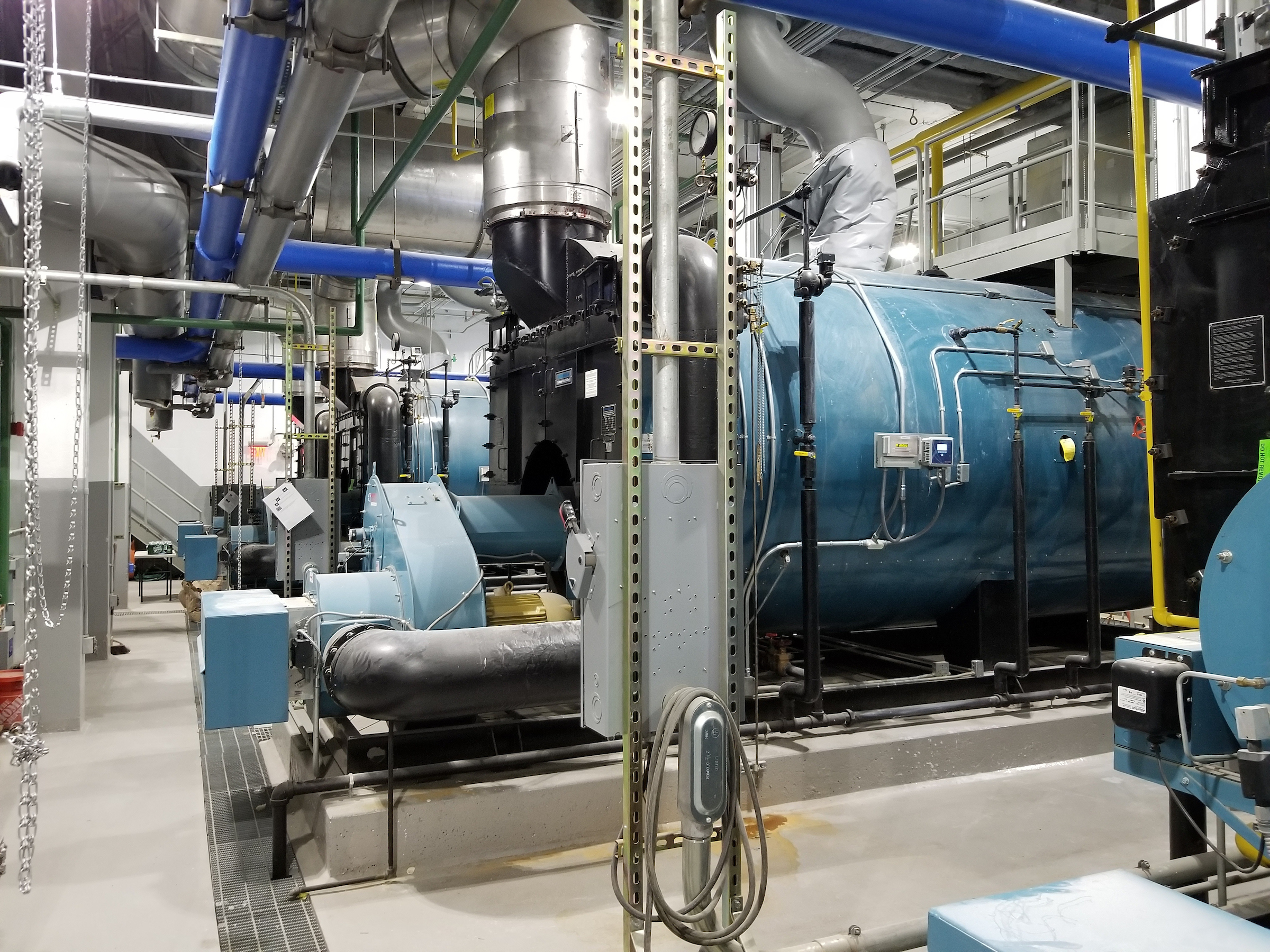$28.6M in Heating Upgrades at Taft Houses and Whitman Houses
On March 9, NYCHA announced the completion of $28.6 million in large-scale heating system renovations: the $9.8 million installation of eight new steam and condensate pipes at Taft Houses in Harlem and the $18.8 million installation of four new boilers and related upgrades at Whitman Houses in Brooklyn. Collectively, the investments ensure more reliable heat and hot water service to over 6,000 residents and are consistent with the work being done through NYCHA’s Transformation Plan to improve key issues of concern outlined in the 2019 agreement with the U.S. Department of Housing & Urban Development (HUD). The heat pipe infrastructure at Taft Houses is 60 years old and had not been replaced since the development was first built in 1962, while the central heating system for the Whitman campus is 78 years old. NYCHA has an extensive workforce and heating footprint, with 624 full-time staff responsible for providing maintenance on close to 1,400 boilers, 1,700 water heaters, and 1,800 pieces of distribution equipment. Under the City Capital Action Plan approved by the Federal Monitor in May 2021, NYCHA has utilized a range of funding sources to replace more than 300 boilers across the portfolio. An additional 600 boilers will be upgraded through the PACT program.
“Delivering reliable heat and hot water service to residents is paramount, and it demands capital investment and meaningful upgrades to our existing heating plants and distribution systems,” said NYCHA Chair & CEO Greg Russ. “As a pillar of the federal agreement, heat remains a focal point of NYCHA’s continued efforts to transform, and we are pleased that the completion of these projects will directly translate to better conditions and quality of life for residents.”
“HUD provides capital funding for repairs, and it is great to be a partner in this effort and see the completion of these heating systems,” said HUD Regional Administrator for New York and New Jersey Alicka Ampry-Samuel. “New boilers will not only provide warmth, they will also ensure a healthy and stable living environment for NYCHA families.”
“NYCHA’s Capital Projects Division has been focused on utilizing multiple funding sources to make our heating system improvements more comprehensive in scope,” said NYCHA Executive Vice President of Capital Projects Steve Lovci. “This approach allows us to make upgrades to the aging infrastructure of our buildings that optimize the impact of our investments and reduce the timeline for completion.”
Replacing the aging, faulty infrastructure for heat and hot water delivery is critical to improving heat service for NYCHA residents. However, outages are not always due to boiler failures; they are often due to issues with other parts of NYCHA’s aging infrastructure, such as distribution systems and heating components. An outdated piece of equipment at a particular building can compromise service for an entire campus, and the capital investments needed to maintain underground steam pipes – like the ones at Taft Houses – have oftentimes not kept up with the pace of decades of use.
The process involved with upgrading the heating infrastructure for a typical NYCHA campus involves either building or replacing underground distribution pipes and ancillary equipment replacements, as well as upgrading a building’s electrical service to support that new equipment. As an auxiliary measure, NYCHA must sometimes cast parts in-house that are no longer commonly manufactured and also relies on sourcing from specialized vendors.
The underground steam distribution improvements at Taft Houses were made possible with $9.8 million in funding allocated through NYCHA’s Annual Federal Capital Grant. Later this year, the Authority will complete a complementary $3.2 million boiler upgrade at Taft Houses, made possible through a larger $200 million investment made by the City in 2018 to replace boilers and heating systems at 20 NYCHA developments with chronic heating outages. The design phase was started by NYCHA’s Capital Projects Division in July 2019 and construction – carried out in conjunction with TR Pipe – began in January 2020. The enhancements promote the more reliable delivery of heat and hot water from the central boilers to apartment radiators.
The boilers and heating projects at Whitman Houses were primarily funded through HUD’s Energy Performance Contracting model, an innovative financing technique that uses cost savings from reduced energy consumption to repay the cost of infrastructure upgrades that improve energy conservation. Normally offered by Energy Service Companies, this approach allows building users to achieve energy savings without up-front capital expenses. The Massachusetts-based renewable energy company Ameresco was utilized to deliver the various facets of the Whitman Houses upgrade, which, in addition to the installation of four 600-horsepower boilers, provided instantaneous water heaters at all 15 buildings, new vacuum condensate tanks at 11 buildings, and the outfitting of a Building Management System that modulates the delivery of heat from the boiler plants to apartments.
Additionally, apartments at Whitman Houses are receiving temperature sensors that control the building’s heating temperature through zone valves connected to the Building Management System. Thirty percent of apartments at this development currently have this technology, with work for all apartments slated to be finished later this year.
Photo caption: A new boiler at Brooklyn’s Whitman Houses.







